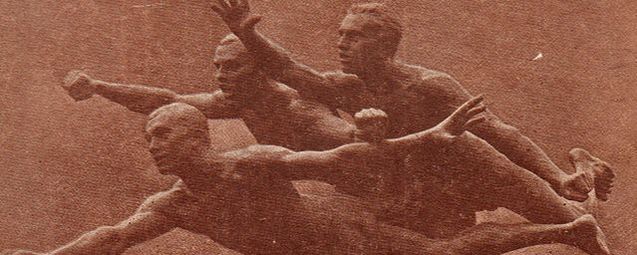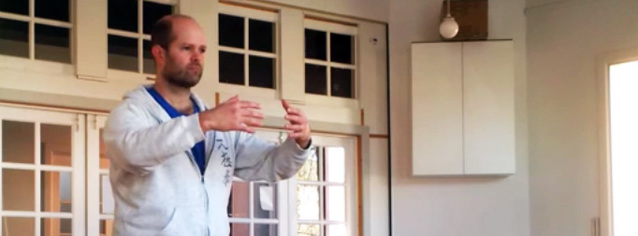|
We should exercise, not because we feel bad about ourselves and our bodies, but instead simply because it’s good for us. Surely that’s reasonable? How did it all get this bad?
What I value the most is this: exercise teaches you about your body and mind. It brings relief from pain and makes moving easier. It encourages self-knowledge and reflection. It can grow your critical mind and give you perspective without feeding your judgmental impulses. It creates peace, when it’s done well, it improves confidence and subtle awareness. It is challenging to describe.
64 Comments
We tend to think about movement and exercise in very much a sports-centric way. But we don’t have to. We talk about healthy competition, and ignore what seems to me to be the much more prevalent issue of unhealthy competition, we talk about athletic progression and developing the human body or machine even. But movement doesn’t have to exist only in this context. We can think of movement in terms of artistic expression.
The plan is to create an exercise library of sorts, featuring weightlifting techniques and information, Tai Chi and Kung Fu tutorials, clips of me just messing around, and more. So my YouTube Channel should grow slowly over time.
The way to get better at a thing is via feedback. Feedback, unlike criticism, can come in many forms, and is absolutely necessary if your goal is to improve at a thing. My Kung Fu and Tai Chi students sometimes struggle to practice, because they lack confidence that they are practicing correctly.
We often mistake a lack of confidence for laziness, and wonder “why can’t I bring myself to this practice? What’s wrong with me?” and we find ourselves doing something else, even when we have the time to practice. Mostly I think, it’s about not quite knowing what to do, feeling adrift, or unsure of ourselves. We question our own methods and motivation, and on some level it’s very easy to wonder what is the point, if we’re not training rightly? This is one of the ways in which perfectionism can really get in the way of, well, everything. A Tai Chi teacher I know recently said that the belief you should be doing it perfectly is the number one reason why people don’t practice, especially beginners.  I’ve spent the last few months teaching one of the other personal trainers at work how to break wooden boards with her hands. The other day, we held a small demonstration, footage of which can be seen here. And on that day, I had three people ask me what the trick is. I said training, and conditioning the hand over time, and understanding appropriate progressions. I also pointed out that it’s easier with certain striking areas than others, but that is simply an aspect of understanding the nature of appropriate progressions. Now that I reflect upon it though, I think the question reveals something else that’s going on in the fitness industry. Of course there is no trick. It’s just training, conditioning the body, and developing over time. The two primary keys to progress are of course known, they are patience and consistency. Moving forward to what will be helpful when it is helpful, but not before. Avoiding injury, over-stimulation, boredom or stagnation. The easiest way to break a board is with a muscular – rather than bony – surface area. So of course we begin by practicing the correct technique and leverage, and getting the heel of the palm used to a small degree of impact. Over time, one may progress to striking with the knuckles, but of course – while stronger in a certain context, the knuckles are also more fragile and vulnerable to injury. So again, appropriate steps only. Move from the simple to the complex, what is doable to what is challenging. I notice it quite profoundly – it’s easy to mistake simple for easy, and complex for difficult, but it often doesn’t work out that way in the end.
Chin-ups are essentially simple, yet quite difficult. Tai chi is extremely complex but it’s all about the elimination of tension within the body, so once you’ve grasped that physically, your practice becomes effortless. The thing is these days, if it’s effortless we think it won’t help us get into a smaller pair of pants, so why bother? Clearly it isn’t really about health anymore. Learning to move without tension is one of the most useful things in the world, as is learning to maximise tension. 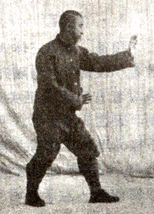 In exercise, and training, you don’t need to be disciplined or forceful. We are told we need to work hard all the time, but this is not true – this approach rarely results in improved quality of movement. Working hard, valuing effort above awareness and insight, often results in the development of inefficient movement patterns. One must learn to train appropriately to the day and the larger objective. This is a subtle skill that develops only over time. But I’m not going anywhere, and I’d hope that after another year of training, I’ll be better at it. For the beginner, discipline and forcefulness are irrelevant, and for the athlete, forcefulness is usually of lesser importance to skill or technique. For a person to be successful at a sport, they generally must be able to effectively apply power to an efficient and effective movement pattern, but at gyms we only value effort, because of the delusion that the reason exercise is good for you is because it ‘burns the foods’. 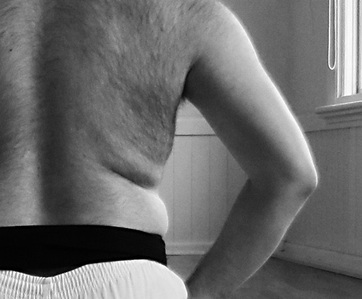 I wrote about putting this idea of beauty (as something out there, something you can qualify for, as something, anything that is not within you already) putting this idea of beauty to rest; putting this idea of needing to qualify to rest. Accepting yourself as you are. If you want to ‘work on’ something, work on discovering your own true character – not on serving the status-quo’s exploitative agenda. But what then? How do you motivate yourself to care for yourself, to exercise and all that stuff, when you’re over pandering to their demands? If you really are worthy now, as you are, then what’s the point of all that hard work? That’s a good point. It’s not worthwhile because some day it might make you beautiful. If that’s all you’re focussed on, you’ll miss the forest for the trees. If you’re constantly seeking this other thing, you’ll neglect – you won’t even be able to see – the real benefits that you’re getting right now. You’ll take them for granted, always looking for this other thing. 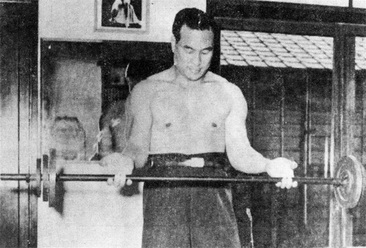 All devoted and ethical martial artists I have known care about protecting that which is vulnerable, fragile, weak, valued or loved. The role of discipline is to enable you to protect that which requires protecting, and to develop and grow in a way that serves you and your best interests. It is not to enable you to police your own oppression – but that’s how we are encouraged to apply it these days. We are called weak, and only strong when we are capable of abusing ourselves in the name of health and progress. Our morality is questioned based on our eating and exercise practices, and assumptions are made about our character, based on our size, shape and weight. I have always felt conflicted about discipline. It’s a double-edged sword, it can harm or it can serve. It is useful, but in excess, or when misapplied, it can be extremely problematic. And as disciplined as I have been in my life, it never made me look the way I wanted. There are gaps in our assumptions.  Yep, that's my silhouette Yep, that's my silhouette I am announcing my new martial arts endeavour. After much, much pondering and a little bit of planning, I am opening my own wushu school: Song Mountain Wushu. Wushu is simply Chinese for martial arts, and I will be teaching kung fu and tai chi. Classes will be held in the dance studio above the gym where I work. This is probably more relevant to those of my readers who live in Melbourne. As probably comes as no surprise, I’m running body-postive classes. You often see martial arts advertised with some sort of weight-loss propaganda thrown in for good measure. It is important to me – in a culture that ‘encourages’ us to be thinner all the damn time – that we have safe spaces for training, where we are not constantly pressured to look different. And of course, the point of martial arts training is not to lose weight. The point depends on you, really – but commonly people train for skills and sporting excellence, for confidence, and to learn practical methods of self-defence. |
